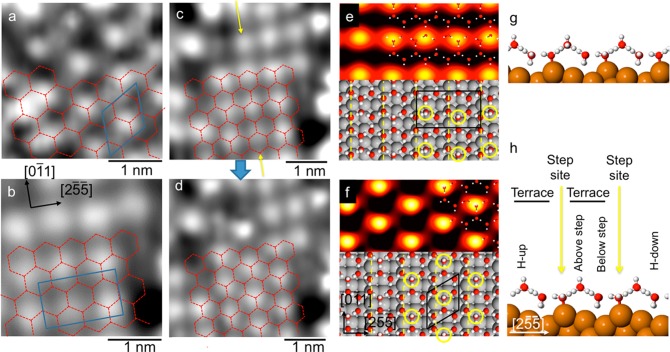Figure 3.
STM images for the 1 ML water structure formed at 138 K showing the formation of a hexagonal network containing water adsorbed with some OH groups pointing away from the surface. (a) Detail of a region with a hexagonal arrangement of bright features in a (3 0, −1 1) repeat and (b) a region with bright features aligned along [25̅5̅] in a doubled, rectangular (3 0, 1 2) repeat that crosses two steps. (c and d) Images of the same region showing a structural change from the rectangular arrangement (c) to hexagonal (d), achieved during scanning by increasing the tunneling current to bring the tip close to the surface. The sites marked by the yellow arrows move up one Cu unit leaving the remaining water network unperturbed, as indicated by the dashed hexagonal network. (e,g and f,h) STM simulations (0.1 V) and DFT structures for arrangements containing one H-up water per unit cell (see SI, structures S4Y and S3D) either in or out of phase on adjacent Cu terraces, with adsorption energies of −75.1 and −75.2 kJ/mol, respectively. The position of the H-up water molecules is indicated by the yellow circles. STM scan direction is vertical with (a) 0.11 V, 41 pA; (b,c) 0.11 V, 21 pA; (d) 53 mV, 21 pA.

